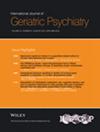Mapping the Numbers of Dementia in Brazil: A Delphi Consensus Study
Abstract
Objectives
As the global dementia crisis intensifies, especially in low-and middle-income countries (LMICs), there is a pressing need for comprehensive prevalence data across diverse regions, including Brazil, where studies have been predominantly limited to affluent urban centers. This study aimed to conduct an expert consensus to determine the prevalence of all-cause dementia in Brazil, considering various age groups, sexes, and geographical areas.
Methods
A Delphi consensus process with clinical and academic experts from across Brazil was conducted to provide dementia prevalence estimates in people aged ≥ 60 years living throughout Brazil for 2019. Each round consisted of answering structured questionnaires that incorporated information from the literature. A priori criteria were used to ascertain the point in which consensus was achieved for > 70% of the 15 prevalence estimates—for (1) total, (2) women and men, and (3) the five Brazilian macro-regions. The current and projected dementia cases in Brazil were calculated based on age and sex population distributions.
Results
Fifteen experts, with a mean professional experience of 25 ± 10 years, reached a consensus in the fourth round. Experts agreed with a mean all-cause dementia prevalence of 8.5% among Brazilians aged ≥ 60 years, which comprised 2.46 million people in 2019 in this age. They reported higher dementia rates in women (9.1%) than men (7.7%); the highest total prevalence was in those over 80 where it exceeds 20%. Regional variations were also noted, with lower prevalence in the South (7.3%) and higher in the North (8.9%) and Northeast (10.1%). Projections estimate that considering Brazil’s rapidly aging population, dementia cases will rise to 8.89 million by 2060.
Conclusions
This Delphi study estimated that dementia already affects roughly 1 in 12 older Brazilians aged 60 and above, with slightly higher prevalence in women and significant geographical variations. These results underscore the urgency for targeted public health strategies in Brazil and offer a framework for similar challenges in other LMICs, especially given that dementia cases are projected to increase by approximately 3.6 times in 4 decades.

 求助内容:
求助内容: 应助结果提醒方式:
应助结果提醒方式:


